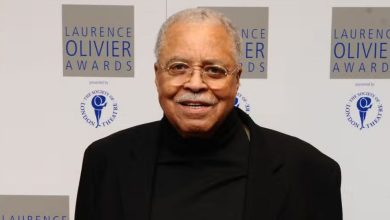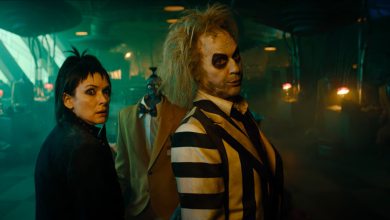Why is the Sequel to “Gladiator II” Highly Anticipated?
Unveiling the Epic Saga: Why "Gladiator II" Is Set to Dominate Cinemas
Why is the Sequel to “Gladiator II” Highly Anticipated?

In the realm of cinema, certain films transcend their time of release to become cultural touchstones, leaving an indelible mark on audiences worldwide. Ridley Scott’s 2000 epic, “Gladiator,” is undeniably one of those films. Set in ancient Rome, it tells the gripping tale of Maximus Decimus Meridius, a general betrayed and enslaved who rises as a gladiator to seek vengeance against the corrupt emperor who murdered his family and sent him to his downfall. Starring Russell Crowe in a career-defining role, “Gladiator” captivated audiences with its sweeping narrative, intense action sequences, and emotional depth.
Now, over two decades later, the announcement and subsequent anticipation of a sequel, “Gladiator II,” have stirred excitement and speculation among fans and critics alike. In this blog post, we delve into the reasons behind the fervent anticipation for this long-awaited continuation of Maximus’s saga.
1. Legacy of “Gladiator”
“Gladiator” is not merely a film; it is a cinematic masterpiece that garnered widespread acclaim and accolades upon its release. Directed by Ridley Scott, the film received eleven Academy Award nominations and won five, including Best Picture and Best Actor for Russell Crowe. Its success was not limited to awards; “Gladiator” grossed over $457 million worldwide and became a cultural phenomenon.
The legacy of “Gladiator II” lies in its compelling storytelling, breathtaking visuals, and memorable characters. Maximus’s journey from respected general to enslaved gladiator resonated deeply with audiences, driven by Crowe’s powerful performance and Scott’s meticulous direction. The film’s themes of honor, revenge, and redemption struck a chord with viewers, ensuring its enduring popularity.
2. Continued Interest in Ancient Rome
The setting of ancient Rome has always fascinated audiences, offering a backdrop of grandeur, political intrigue, and larger-than-life characters. “Gladiator” expertly brought this world to life, showcasing the opulence of the Roman Empire contrasted with the brutality of its gladiatorial arenas. The sequel, “Gladiator II,” promises to delve deeper into this rich historical period, exploring new facets of Roman society and culture while maintaining the authenticity and immersive quality that defined its predecessor.
3. Directorial Vision of Ridley Scott
Ridley Scott’s return to the world of “Gladiator” as director of the sequel is a significant draw for audiences. Scott’s cinematic prowess and ability to create visually stunning and emotionally resonant narratives have made him a revered figure in filmmaking. His decision to revisit Maximus’s story indicates a personal and creative investment in continuing the saga, ensuring that “Gladiator II” will be crafted with the same meticulous attention to detail and epic scope that defined the original.
Scott’s involvement instills confidence in fans that the sequel will honor the legacy of “Gladiator” while pushing the boundaries of storytelling and visual spectacle. His commitment to authenticity and historical accuracy, coupled with advancements in filmmaking technology, promises to deliver a cinematic experience that exceeds expectations.
4. Evolution of Characters and Story
“Gladiator II” is poised to expand upon the characters and narrative threads established in the original film. While Russell Crowe’s Maximus met a poignant end in “Gladiator,” the sequel focuses on new characters and developments within the Roman Empire. The introduction of Lucius, portrayed by Paul Mescal, as the son of Lucilla (Connie Nielsen) and nephew to the villainous Commodus (Joaquin Phoenix), provides a new perspective and storyline to explore.
The evolution of Lucius from a boy in the original film to a gladiator embroiled in political intrigue underscores the sequel’s ambition to deepen its narrative complexity. New alliances, betrayals, and challenges await, promising audiences a gripping continuation of the themes of power, honor, and legacy that defined the first film.
5. Star-Studded Cast and Performances
The casting choices for “Gladiator II” have generated significant buzz and anticipation. Paul Mescal, known for his breakout role in “Normal People,” steps into the role of Lucius with a blend of youthful energy and dramatic depth. His portrayal promises to anchor the sequel’s narrative while exploring themes of identity and destiny.
Joining Mescal are seasoned actors such as Denzel Washington as the scheming Macrinus and Pedro Pascal as a formidable gladiator. The ensemble cast, including returning actors Connie Nielsen and newcomers Fred Hechinger and Joseph Quinn, ensures a diverse and compelling array of characters, each with their motivations and conflicts.
6. Advancements in Cinematic Technology
Since the release of “Gladiator” in 2000, advancements in cinematic technology have revolutionized filmmaking. The sequel, “Gladiator II,” benefits from these innovations, allowing for more immersive battle sequences, breathtaking visuals, and seamless integration of practical effects and CGI. Director Ridley Scott’s commitment to authenticity ensures that these technological advancements enhance rather than overshadow the narrative and emotional core of the film.
7. Cultural and Societal Relevance
In today’s cultural landscape, the themes explored in “Gladiator” resonate deeply. Issues of power, corruption, and the quest for justice are as relevant now as they were in ancient Rome. The sequel, “Gladiator II,” has the potential to not only entertain but also provoke thought and discussion about timeless themes that transcend historical and cultural boundaries.
Conclusion
The anticipation for “Gladiator II” is fueled by a combination of factors: the enduring legacy of its predecessor, Ridley Scott’s visionary direction, the allure of ancient Rome, and the promise of compelling characters and narratives. As audiences eagerly await the film’s release, the excitement and speculation surrounding “Gladiator II” underscore its status as one of the most highly anticipated sequels in cinematic history. Just as we know Why is Jenn Tran’s Season of The Bachelorette Historically Significant?
With each new detail released, from casting announcements to trailers, the anticipation continues to build, reaffirming the cultural significance and enduring appeal of Maximus’s epic journey. As November 22nd, 2024 approaches, fans and critics alike await with bated breath to witness the next chapter in the saga of “Gladiator” unfold on the silver screen.




